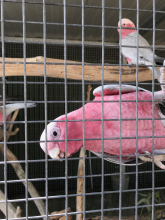From the time he was five years old, Scottie Day knew he was going to be a doctor.
"I don't remember what the drive was," said Day. "But I knew that's what I was going to do."
Day hails from Smilax, a small town in Eastern Kentucky which, according to Day, consists of "a post office and a grocery store." His father was a coal miner and his mother stayed home with Day and his brother.









